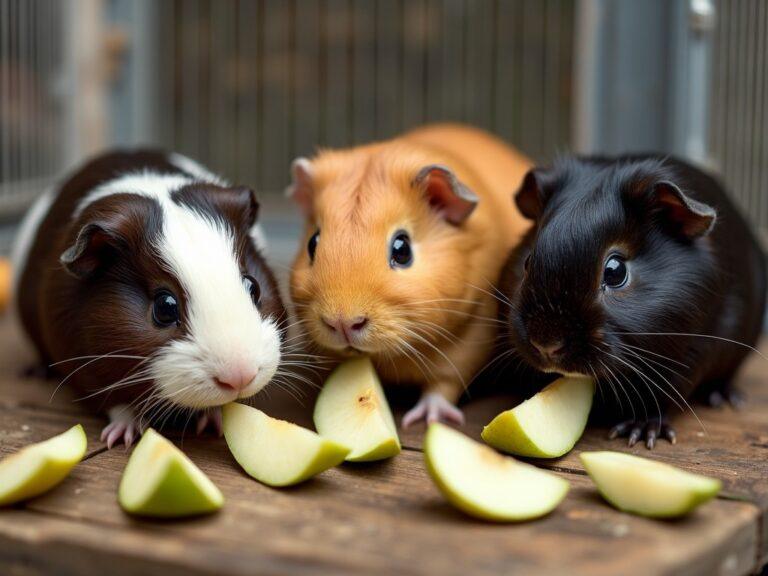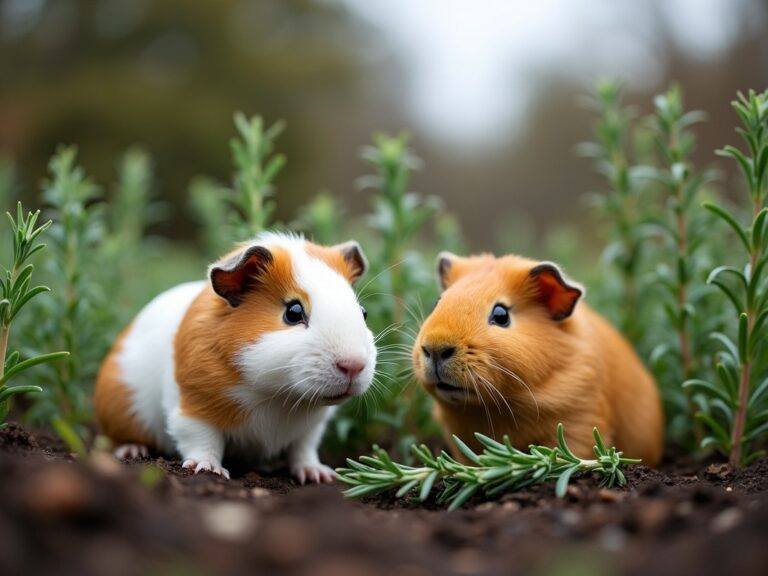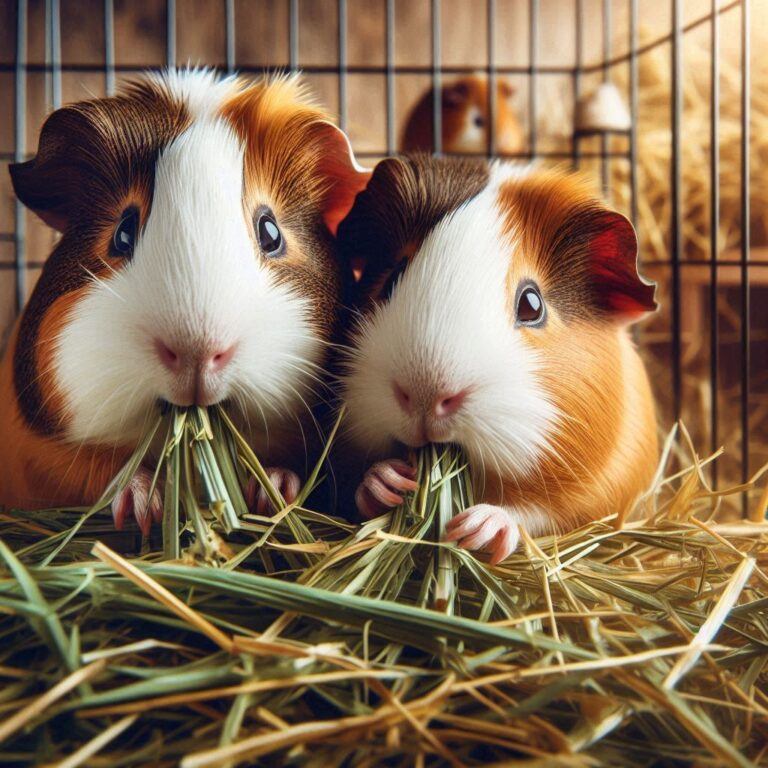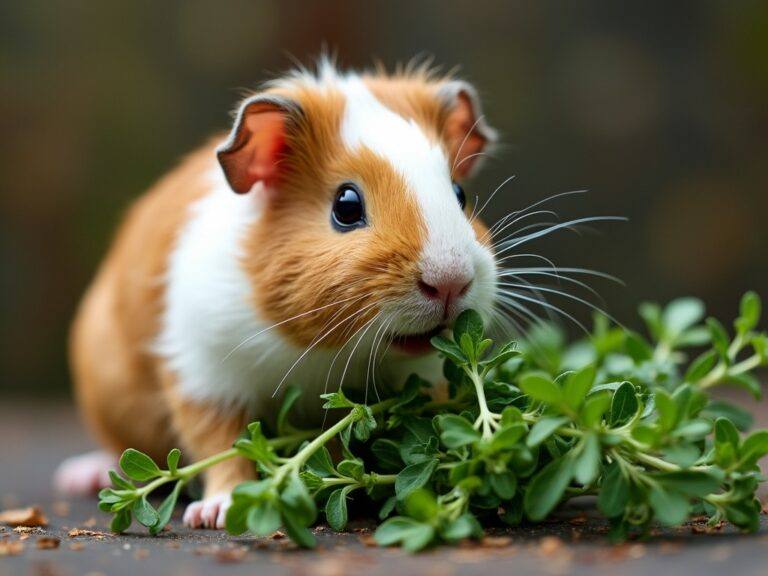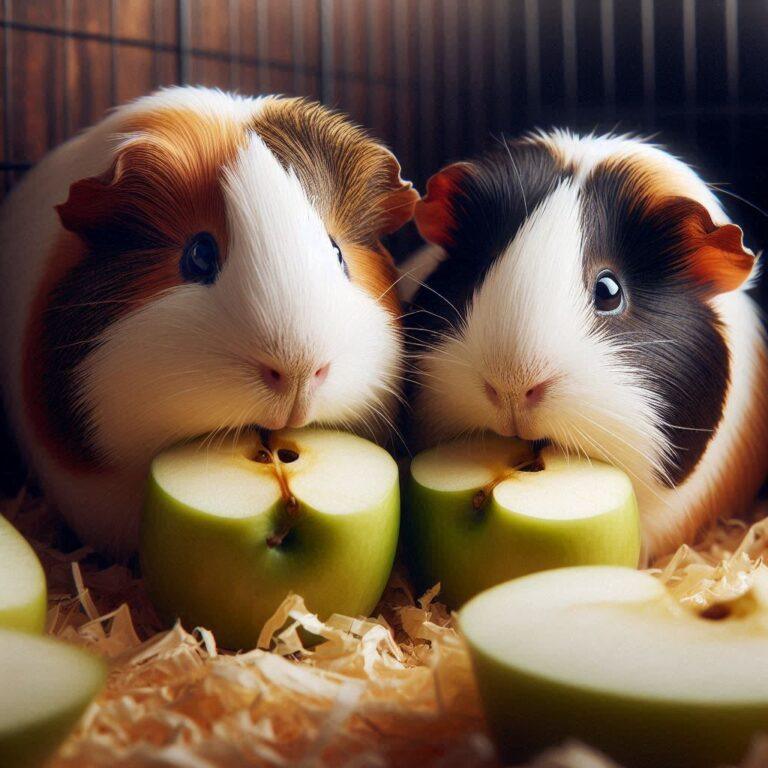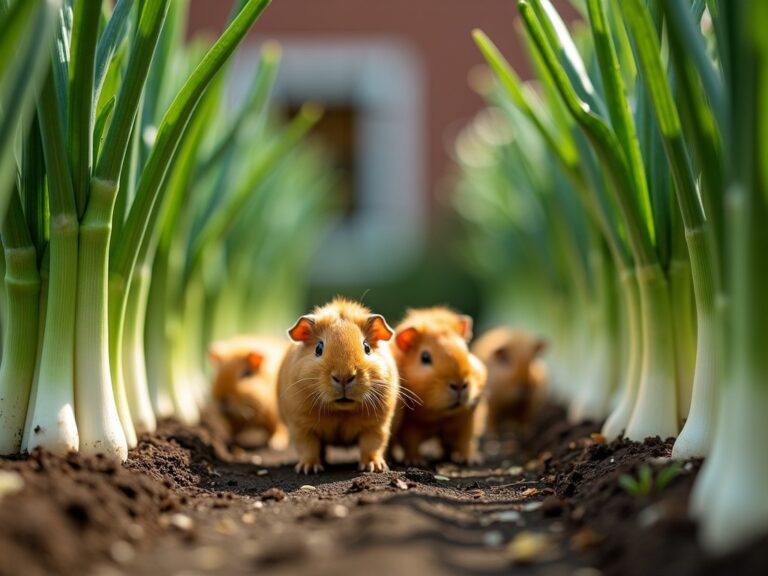Can Guinea Pigs Safely Eat Cat Food
No, guinea pigs cannot safely eat cat food. This might surprise you, but the dietary requirements for guinea pigs and cats couldn’t be more different. While cats are obligate carnivores and need a diet high in protein and fat, guinea pigs are herbivores who thrive on a diet rich in fiber and vitamin C.
Giving guinea pigs cat food could lead to severe health complications.
Cat food is specially formulated to meet the nutritional needs of cats, which includes a higher protein and fat content that guinea pigs simply cannot process.
The primary ingredients of cat food such as meat and fish, which might seem harmless, are entirely unsuitable for guinea pigs.
This could result in digestive issues and other serious health concerns like obesity or liver problems.
Guinea pigs have unique dietary needs that revolve around a plant-based menu. They require a constant supply of fresh hay, fresh vegetables, and specially formulated guinea pig pellets.
Cat food lacks the necessary fiber and vitamin C vital for a guinea pig’s health, leading to deficiencies and related health problems.
Feeding guinea pigs cat food, even occasionally, poses significant risks. The high protein and fat levels in cat food can dangerously imbalance their diet.
For a species that derives its primary nutrients from plants, the introduction of animal-based products is not just unhealthy, it’s potentially life-threatening.
Prioritize foods that are specifically meant for guinea pigs to ensure they stay healthy and happy.
Understanding the Unique Dietary Needs of Guinea Pigs
Guinea pigs have specific dietary needs that are crucial for their well-being. One of the most important aspects of their diet is the need for vitamin C.
Unlike many other animals, guinea pigs cannot produce their own vitamin C, so it must be supplied through their food. Fresh vegetables like bell peppers and leafy greens can provide this essential nutrient.
A plant-based diet is the foundation of a healthy guinea pig’s life. Fresh hay should always be available, as it aids in digestion and helps wear down their continuously growing teeth.
High-fiber foods are essential since guinea pigs rely heavily on fiber to maintain their digestive health.
Guinea pig pellets can also play a role in their diet, but they should be formulated specifically for guinea pigs and checked for their vitamin C content.
Avoid pellet brands that include seeds, nuts, or dried fruit as these can be harmful. Stick to plain, fortified pellets for the best results.
Feeding your guinea pig the wrong diet can have serious consequences. For example, a lack of dietary fiber can lead to gastrointestinal stasis, a condition where the digestive system slows down or stops entirely.
Additionally, without enough vitamin C, guinea pigs can develop scurvy, which leads to joint issues, a weakened immune system, and other severe health problems.
Ensuring they get the right foods prevents these issues and promotes a healthy, active life.
Healthy Dietary Practices for Guinea Pig Owners
Creating a balanced feeding routine is essential for the well-being of your guinea pig. Fresh hay should make up the majority of their diet, providing the necessary fiber to keep their digestive system running smoothly.
Supplement this with a variety of fresh vegetables like bell peppers, cucumbers, and romaine lettuce to ensure a well-rounded intake of vitamins and minerals.
Daily feeding schedules can help maintain consistency in their diet. Offer fresh vegetables in the morning and evening, while keeping hay available throughout the day.
Fresh water should always be accessible and changed daily to keep it clean.
It’s also important to know which foods to avoid. Foods like iceberg lettuce, potatoes, chocolate, onions, garlic, and any type of meat or dairy are harmful to guinea pigs.
These can cause digestive upset and other health issues. Similarly, steer clear of sugary fruits, as they can lead to obesity and dental problems.
Consider adding proper supplements if necessary. Vitamin C supplements can sometimes be beneficial, especially if you’re unsure whether your guinea pig is getting enough from their diet.
Always consult with a veterinarian before introducing any supplement to ensure it’s safe and needed for your pet.
Monitoring your guinea pig’s weight and health is a good practice. Regularly checking for signs of illness, such as changes in eating habits, lethargy, or weight loss, can help catch potential problems early.
Consistent diet and care can help ensure your guinea pig lives a healthy, happy life.


